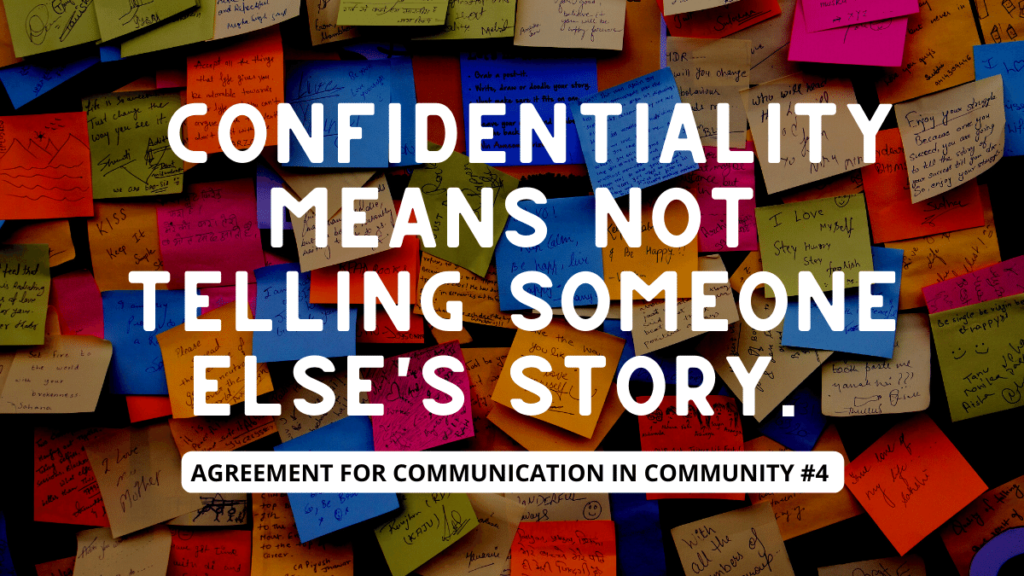
In my job(s), I am grateful to reap the wisdom of young people. Over the years I’ve found that often children and teenagers understand some fundamentals about life that have become overcomplicated and therefore lost to us grownups. One such example sticks vividly in my memory. I was chaperoning a middle school camping trip and a few of the students were standing around chatting (ok let’s be honest they were gossiping). As they talked, I heard one of them say, very nonchalantly, “you know, we probably shouldn’t talk about someone who isn’t here. It’s not fair because they don’t have a chance to speak for themselves.”
Probably most of us realize that talking behind someone’s back or gossiping isn’t productive. But we can also be hurtful, unintentionally, when we talk about another person without them being present. Even sharing something so that others “can pray too” is crossing the line. Something we say in youth group every Sunday as we light our candle is very similar to this Agreement for Communication—the stories we share are ours alone, not for others to tell on our behalf.
In a church setting we are often in situations where we are vulnerable with others. We might share that we’re struggling in a relationship, with our health, or that we’re feeling doubtful of our faith or our importance in the world. Those stories and situations are ours alone and we choose when and how to talk about them. Having the trust of a conversation partner allows us to be more open.
It is sometimes hard to be the keeper of a person’s story. (And in youth group we do always speak the caveat that if someone shares that they are in danger of harm or might hurt someone else, an adult will follow up). By holding another’s pain, suffering, and vulnerability we want to bounce that off of others, get some help ourselves. But it’s important to remember that is not our place. We’ve been entrusted to listen, not to fix or solve. Maybe the next time you are in a conversation about a person who isn’t present, you’ll find the strength of an 8th grader and say “you know, we probably shouldn’t talk about someone who isn’t here.”
– Erika Mueller, Children and Youth Ministries Director

Recent Comments